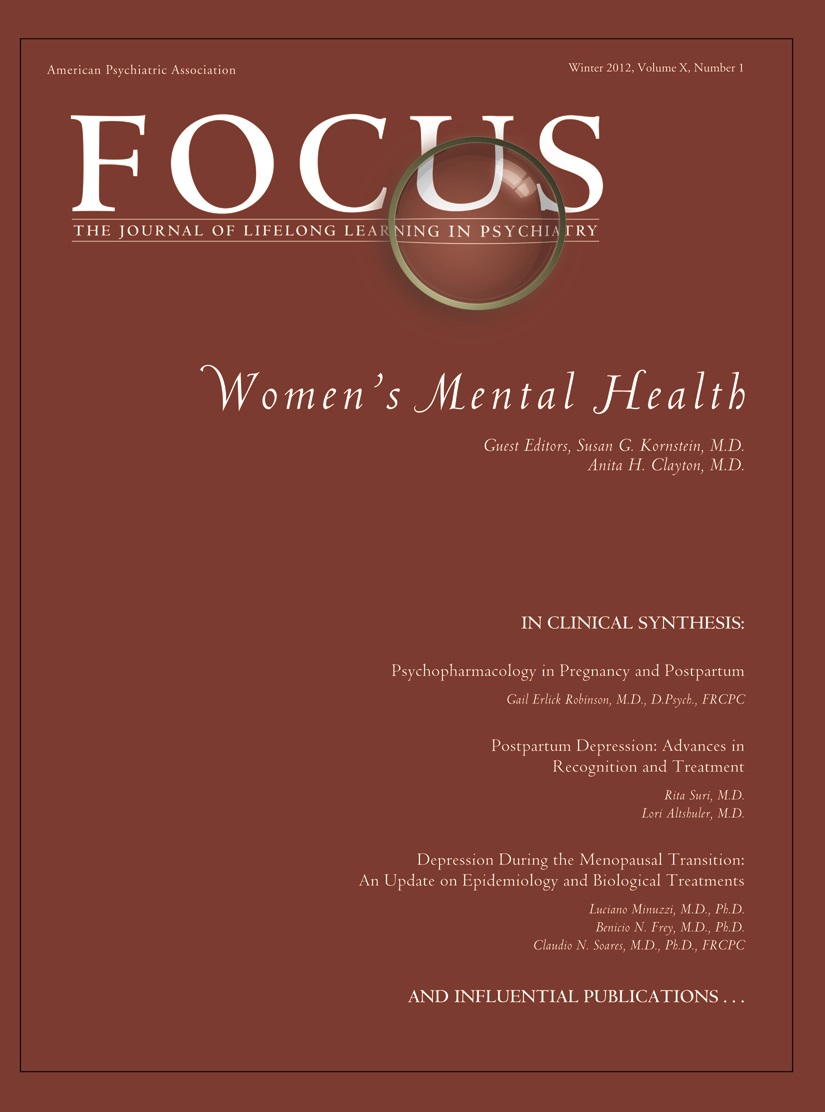Abstract
Psychiatric illness can occur during pregnancy and the postpartum period. Not only will the mother feel distressed but also these illnesses can cause direct and indirect harm to the baby as well as create long-term negative consequences for the mother and the couple. Although using medication during pregnancy or breastfeeding may worry some patients and physicians, untreated depression, anxiety, or psychoses may cause even more harm. Research on the effects of psychotropic drugs on the fetus and on breastfeeding is limited by the inability to establish gold standard trials. Research that is published must also be viewed critically because poor methodologies can lead to unwarranted and alarming conclusions. To date, available information suggests that most antidepressants do not cause major clinical malformations but do cause a slightly elevated risk of miscarriage and preterm delivery. Typical antipsychotics also appear to be relatively safe to use during pregnancy. Less information is available about atypical antipsychotics, but no specific patterns of harm have been detected. Valproic acid has a high risk of causing malformations. Most psychotropic medications are compatible with breastfeeding. The clinician must use the evidence available to make risk/benefit analyses about the best course of action. Educating the mother about what information is available assists her in making decisions that will be of most benefit to her and her baby.



